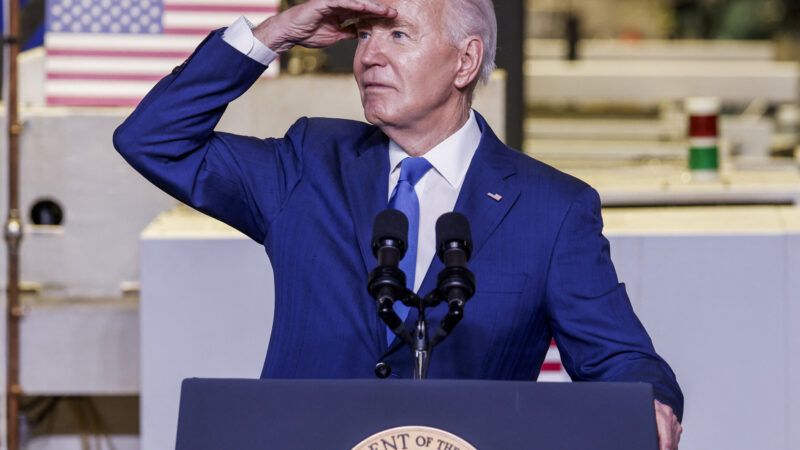Biden Shouldn't Have Commuted the Sentence of a Judge in the 'Kids for Cash' Kickback Scandal
But that shouldn't detract from the many worthy people who received commutations after spending years on home confinement.

Among the 1,500 federal offenders whose home confinement sentences were commuted by President Joe Biden yesterday was a former judge who took millions of dollars in kickbacks to send teenagers to private juvenile detention centers.
The Citizens' Voice first reported that Biden had commuted the sentence of Michael Conahan, a former Pennsylvania judge who pleaded guilty to racketeering in 2011 for participating in an infamous "kids for cash" scheme. Conahan and another judge received nearly $3 million in kickbacks to increase the head counts at two juvenile detention centers, often sending teens upriver for minor disciplinary issues. Conahan was sentenced to 17 years in federal prison.
However, in 2020, the elderly Conahan became one of roughly 13,000 federal prisoners who were released to home confinement during the COVID-19 pandemic under the CARES Act, a large pandemic relief bill. To qualify, an inmate had to be medically vulnerable, not be convicted of violent or sexual crimes, and have completed the majority of their sentence, among other requirements.
The Justice Department under Donald Trump's first term planned on returning those offenders back to prison when the pandemic emergency declaration ended. But criminal justice groups successfully pressured the Biden administration to release a new rule allowing those offenders to remain at home, arguing it was cruel and wasteful to reincarcerate them after they'd been successfully rebuilding their lives for several years. A potent data point for their argument was the extraordinarily low recidivism rate among those released: The Bureau of Prisons reported in 2023 that, among the 13,204 individuals serving their sentence on home confinement since March 2020, only 22 had been rearrested for a new offense, mostly for drugs or other minor crimes.
Biden said in a White House press release that those whose terms of home confinement he commuted "have successfully reintegrated into their families and communities and have shown that they deserve a second chance."
But the news that Conahan was granted clemency has marred the White House announcement and led to negative media coverage—understandably.
Racketeering is a nonviolent crime under federal guidelines, but the White House had the discretion—and should have had the common sense—to recognize that the outcome of this nasty little scheme was subjecting minors to state-sanctioned violence through excessive incarceration. He deprived young men and women of their liberty to line his pockets. It's judicial misconduct of the highest order, and it deserves opprobrium, not the sort of mercy that Conahan was too corrupt to grant to teenagers when he was on the bench.
Sandy Fonzo believes her son's suicide at age 23 was due to his being sent to one of the facilities at 17 as part of the kickback scheme.
"I am shocked and I am hurt," Fonzo told The Citizen's Voice. "Conahan's actions destroyed families, including mine, and my son's death is a tragic reminder of the consequences of his abuse of power. This pardon feels like an injustice for all of us who still suffer. Right now I am processing and doing the best I can to cope with the pain that this has brought back."
To be clear, Biden didn't pardon Conahan, which would have cleared his record. A commutation modifies a sentence but leaves the judgment intact.
But this is the sort of foot-dragging and face-planting routine that has defined the Biden administration's approach to criminal justice reform. It's a shame the White House's carelessness will cloud the grants of clemency for hundreds of other deserving recipients.


Show Comments (33)